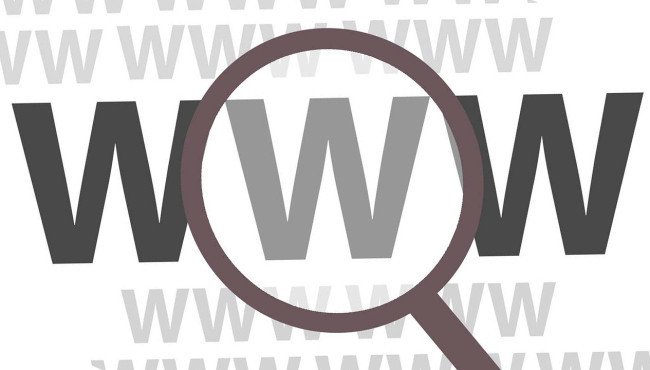views

intimidating, but in reality, it is a fundamental component of the online experience. Web hosting is essentially the service that keeps your website operational on the internet. Without it, your site is merely a collection of files stored on your computer, devoid of a domain name that allows people to find it.
Web hosting can be understood as renting a space on the internet where all your website's data, images, and pages are stored. When someone enters your website’s name into their browser, the hosting server retrieves the necessary files and displays your website on their screen. While this sounds straightforward, there are several intricate details involved that can significantly impact your site's performance and reliability. Understanding how web hosting operates is crucial, especially since choosing the right host can determine the success of your online sales and overall digital presence.
1. What Is Web Hosting (In Plain Words)?
Let’s break it down in simple terms. Picture your website as a retail store. Within this store, you have products that represent your content, shelves that symbolize your layout, and a sign bearing your name, which is your domain. However, without a physical building for your store, no one can visit. In this analogy, the building represents your web hosting, providing the necessary structure for your online shop.
A web host is responsible for storing your website’s files on a server, which can be likened to a powerful computer that remains connected to the internet around the clock. This continuous connection ensures that whenever someone attempts to visit your website, their browser sends a request to the server for your files, resulting in your site loading on their device. This process, although seemingly simple, involves various steps that must occur swiftly to provide a seamless user experience.
Different types of hosting setups exist, including shared, dedicated, VPS, and cloud hosting, each catering to varying needs and budgets. For beginners, shared hosting is often the most user-friendly and cost-effective option. It can be compared to renting a room in a large apartment complex, where you share space and costs with other tenants. As your site gains traction and traffic increases, you may eventually want to upgrade to a dedicated or VPS plan, which offers more resources and autonomy.
2. How Does Web Hosting Work Behind the Scenes?
-
Alright, let’s take a closer look at how web hosting operates behind the scenes. The process begins when you purchase a domain name that represents your website. Once you have secured your domain, the next step is to sign up for a hosting plan and link it to your domain. After that, you will upload all your website files, including text, images, and code, to the hosting server. When someone types your domain into their browser, it triggers a search for your hosting server, enabling the browser to access your files.
-
The server then sends the required files to the visitor’s device, allowing your website to load almost instantaneously, provided everything is functioning correctly. This entire process occurs in the blink of an eye, and the efficiency of your host plays a significant role in how smoothly it unfolds. A reliable hosting provider ensures a seamless experience, while a subpar one can leave your visitors staring at a frustrating loading screen.
-
Moreover, reputable hosting companies offer more than just storage solutions. They implement security measures to protect your site from hackers, provide backup services to safeguard your data in the event of an issue, and maintain 24/7 uptime to ensure that your business remains accessible around the clock, even while you are away.
3. Getting the Fundamentals of Web Hosting Right
When selecting a hosting plan, several fundamental aspects are crucial to consider. These fundamentals of web hosting include features and services that you cannot afford to overlook. First and foremost is speed and uptime; your website should load quickly and remain operational at all times. Any delay in loading can lead to lost visitors, which can impact your site's overall success.
-
Next is security; a robust hosting provider should offer features such as SSL certificates, firewalls, and regular backups to protect your site from threats. Security is a non-negotiable aspect of hosting since a compromised site can lead to significant issues.
-
Another consideration is customer support. Even the best websites experience crashes or technical difficulties at times, so having access to prompt, human support (rather than automated responses) can be invaluable in resolving issues quickly and effectively.
-
Lastly, your hosting plan should be scalable, meaning it can grow with your traffic demands. This flexibility ensures that you won’t have to start from scratch if your website’s popularity increases. If you are unsure where to begin, opting for a shared hosting plan is ideal for newcomers. It provides a solid foundation, and you can always upgrade as your needs evolve.
4. Types of Web Hosting Explained (Without the Tech Talk)
There are numerous varieties of web hosting, each designed to accommodate different types of websites. Let’s simplify this discussion to highlight the most common options available. Shared hosting is often the most cost-effective and straightforward choice, making it an excellent starting point for beginners. In this model, you share server space with other websites, similar to roommates sharing a Wi-Fi connection.
VPS hosting, on the other hand, offers you a private section within a shared server, akin to renting a condominium rather than residing in a dormitory. This option provides more resources and control, making it suitable for websites that experience higher traffic. Dedicated hosting means you have an entire server exclusively for your website, which is powerful but comes at a higher price. This option is ideal for large websites or businesses that require significant resources. Lastly, cloud hosting utilizes multiple servers to ensure that if one fails, another seamlessly takes its place, providing flexibility and reliability.
If you lack technical expertise, consider opting for managed hosting, especially if you're using platforms like WordPress. This approach allows the hosting provider to handle updates, security, and speed optimization on your behalf. Each hosting option has its benefits and price point, so it’s essential to determine your specific needs and budget to make an informed decision.
5. Why Choosing the Right Web Host Actually Matters?
The choice of web hosting provider is a critical decision because it influences virtually every aspect of your online presence. If you select a slow or unreliable host, it could negatively impact your search engine rankings and frustrate your visitors, potentially leading to lost sales. Imagine a user clicks on your site in a search engine, only to find that it takes several seconds to load—this scenario can result in a lost lead. When you consider the cumulative effect of such delays across many visitors, it's clear that speed and uptime are not merely optional; they are essential.
A dependable hosting service provides several key advantages. It protects against hacking attempts and malicious software that could compromise your site, ensuring that your online presence remains secure. Furthermore, a good host will have backup solutions in place, ready to restore your site in the event of any issues. Quick loading pages enhance user engagement and contribute positively to your SEO efforts, making them crucial for your website's visibility.
Your web host is not just a technical necessity; it serves as the foundation of your online business. Making the right choice in this regard is among the most strategic digital decisions you will ever make. As you navigate the digital landscape, remember that your web hosting provider plays a pivotal role in your website's functionality and performance.
Conclusion
In conclusion, web hosting may initially seem complex, but its significance cannot be overstated. It is the lifeblood that keeps your website operational, visible, and secure. By understanding what web hosting entails and how it operates, you can make an informed choice when selecting a provider that aligns with your goals. No matter if you are launching a personal blog or establishing a business, your hosting provider acts as your online landlord. Therefore, it is crucial to choose wisely, as the quality of your hosting environment will determine how smoothly everything else operates.
Lastly, keep in mind that your website is often the first impression potential customers will have of you or your business. Don’t allow slow loading times or unexpected downtime to be the reason they navigate away. Investing in quality web hosting is an investment in your digital reputation and success.











